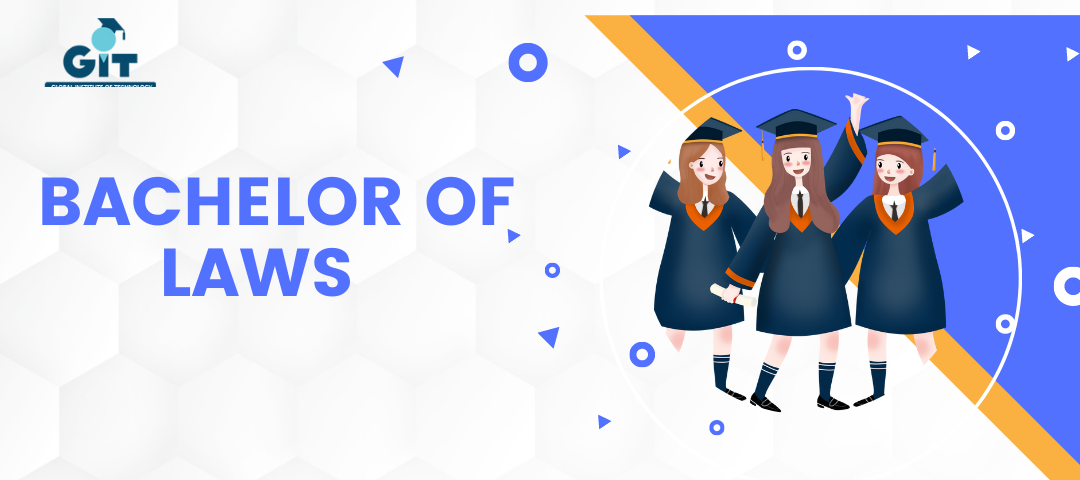
Bachelor of Laws
LLB stands for Bachelor of Laws, and it is a three-year undergraduate degree program that prepares students for a career in the legal profession. The LLB course provides students with a comprehensive understanding of the Indian legal system, including its history, constitutional law, criminal law, civil law, and commercial law.
COURSE OUTCOMES
-
LLB stands for Bachelor of Laws, and it is a three-year undergraduate degree program that prepares students for a career in the legal profession. The LLB course provides students with a comprehensive understanding of the Indian legal system, including its history, constitutional law, criminal law, civil law, and commercial law.
Approvals Checklist




Overview of Bachelor of Laws

LLB stands for Bachelor of Laws, and it is a three-year undergraduate degree program that prepares students for a career in the legal profession. The LLB course provides students with a comprehensive understanding of the Indian legal system, including its history, constitutional law, criminal law, civil law, and commercial law.
LLB stands for Bachelor of Laws, and it is a three-year undergraduate degree program that prepares students for a career in the legal profession. The LLB course provides students with a comprehensive understanding of the Indian legal system, including its history, constitutional law, criminal law, civil law, and commercial law.
LLB course curriculum:
Constitutional Law: This course covers the principles and practices of the Indian Constitution, including its history, structure, and functions. It also covers the fundamental rights and duties of Indian citizens.
Criminal Law: This course covers the principles and practices of criminal law, including the Indian Penal Code, Criminal Procedure Code, and Evidence Act.
Civil Law: This course covers the principles and practices of civil law, including the Indian Contract Act, Indian Partnership Act, and Indian Sale of Goods Act.
Commercial Law: This course covers the principles and practices of commercial law, including the Indian Companies Act, Indian Negotiable Instruments Act, and Indian Insurance Act.
Family Law: This course covers the principles and practices of family law, including the Hindu Marriage Act, Hindu Succession Act, and Indian Divorce Act.
Labor Law: This course covers the principles and practices of labor law, including the Industrial Disputes Act, Minimum Wages Act, and Employees' Provident Funds and Miscellaneous Provisions Act.
Intellectual Property Rights: This course covers the principles and practices of intellectual property law, including the Indian Copyright Act, Indian Patents Act, and Indian Trademarks Act.
In addition to these courses, LLB programs may require students to complete internships with law firms, legal aid clinics, or courts to gain practical experience in the legal profession.
Overall, the LLB course provides students with a solid foundation in the principles and practices of the Indian legal system, preparing them for careers as lawyers, judges, legal advisors, or legal consultants.
LLB (Bachelor of Laws) is an undergraduate law degree program that provides students with a comprehensive understanding of the Indian legal system. Here are some of the key highlights of the LLB course:
Duration: The LLB course is a three-year undergraduate degree program.
Curriculum: The LLB course curriculum includes subjects such as Constitutional Law, Criminal Law, Civil Law, Commercial Law, Family Law, and Labor Law, among others. The curriculum is designed to provide students with a thorough understanding of the Indian legal system, including its history, principles, and practices.
Internships: LLB programs may require students to complete internships with law firms, legal aid clinics, or courts to gain practical experience in the legal profession. These internships help students develop their practical skills and gain hands-on experience working in the legal field.
Electives: Some LLB programs may offer elective courses in specialized areas such as Intellectual Property Law, Cyber Law, International Law, and Human Rights Law, among others. These electives allow students to focus on specific areas of interest and gain specialized knowledge in their chosen field.
Admission Process: The admission process for LLB courses typically involves clearing an entrance exam, which tests the candidate's general knowledge, reasoning, and legal aptitude. Some universities may also require candidates to clear a personal interview or group discussion round.
Eligibility criteria for LLB
Educational Qualification: Candidates must have a Bachelor's degree or an equivalent degree from a recognized university in any discipline. The minimum aggregate score required may vary from university to university, but it is generally around 45-50%.
Age Limit: There is no upper age limit for LLB admission. However, some universities may require candidates to be at least 20-21 years of age at the time of admission.
Entrance Exam: Many universities and institutions require candidates to clear a LLB entrance exam to be eligible for admission. The entrance exam usually consists of objective-type questions related to general knowledge, reasoning, and legal aptitude.
Reservation: Candidates belonging to specific categories such as SC, ST, OBC, PWD, or minority groups may be eligible for reservation in seats as per government norms.
It is advisable to check the eligibility criteria of the specific institution where you want to pursue an LLB course to ensure that you meet all the requirements before applying for admission. Some universities may also require candidates to have work experience in the legal field, while others may require candidates to clear a personal interview or group discussion round.
5000+
Students Enrolled
20+
Courses Offered
30+
Top Universities
10+
10 Years of experience